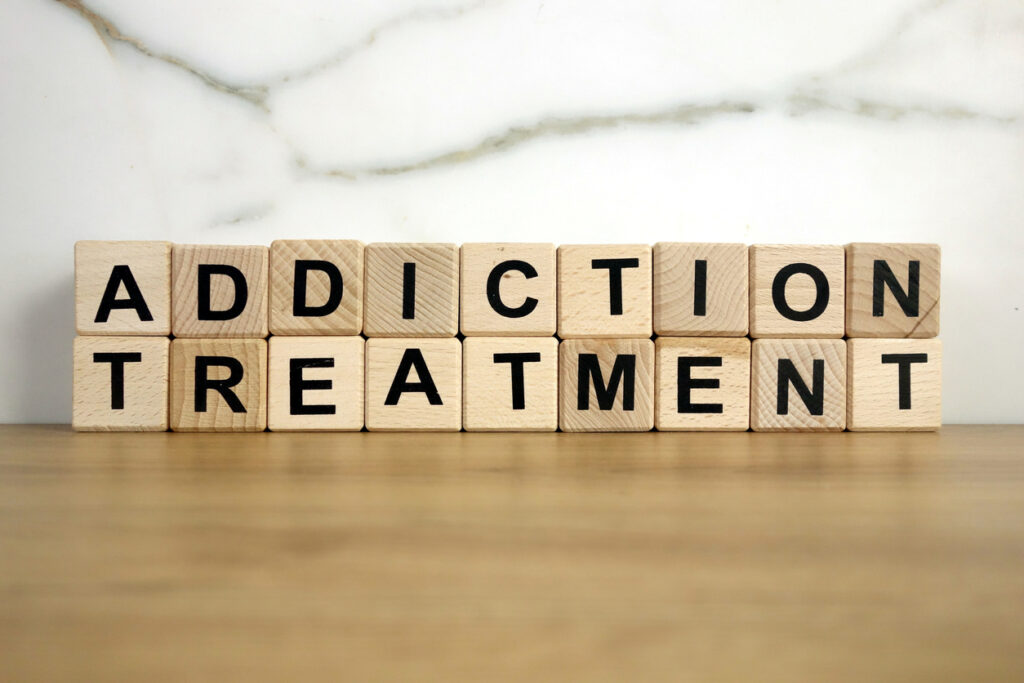
Different Types of Addiction & How They’re Treated
Legacy Healing Center Blog
For a long time, addiction was thought of and treated as if it was a choice, a decision. Further understanding of addiction and the brain has proven otherwise. Addiction is now recognized as a biological disease¹ in which a person is unable to control the consumption of a product or control certain behaviors, continuing in them despite the knowledge of adverse effects².
If you or a loved one is in need of a drug rehab center in South Florida or New Jersey area, contact us today for information and resources to help start your road to recovery.
How Addiction Works
“A common misperception is that addiction is a choice or moral problem, and all you have to do is stop. But nothing could be further from the truth,” states Dr. George Koob, the director of the National Institute on Alcohol Abuse and Alcoholism¹.
Instead, addiction, whether chemical or behavioral, has actually changed the brain. Addiction hijacks the brain, taking over hardwired responses and even damaging areas of the brain dedicated to survival.
Addiction’s only goal is to survive. It rewires neuropathways, changing a healthy brain’s pleasure/reward responses to crave the substance or behavior to which you are addicted. Furthermore, addiction also changes the emotional response to danger circuits in the brain.
Where a healthy brain seeks to protect you from perceived danger, an addicted brain can cause these circuits to go into overdrive, causing anxiety and stress when the addicted chemical or behavior is not being used¹.
Addiction types are broken into two categories: behavioral and chemical.
What to Know About Behavioral Addiction
Behavioral addiction operates in the brain the same way as a chemical addiction. A person with a behavioral addiction craves the behavior and feels stressed or anxious without it. For this person, partaking in the behavior releases a sense of euphoria or a “high.”³ Common behavioral addictions include:
- Gambling addiction
- Sex addiction
- Cyber addiction (addiction to the internet, phone or digital media)
- Work addiction
- Shopping addiction
Behavioral addictions are recognized diseases by the World Health Organization (WHO)².
What to Know About Chemical Addiction
Chemical addiction is a biological condition in which a person seeks and uses substances that are either harmful in and of themselves or are harmful in the way they are used. Chemical addiction could include one or more of the following:
- Alcohol
- Prescription medications, such as
- Opioids,
- Morphine,
- Fentanyl,
- Xanax,
- Valium, and more.
- Illegal drugs, such as
- Heroin,
- Cocaine,
- Ecstasy,
- Methamphetamines, and more⁴.
Different Types of Addiction Treatments
There are multiple ways to treat types of addiction. The best course of treatment for you should be determined by you, your family, and your medical and mental health team. Every experience, every addiction, every person, even various substances and behaviors, requires unique care.
But there are several options, including inpatient rehab, outpatient rehab, other therapies or combinations of therapies designed to help regain control of your life.
Inpatient Rehab
Inpatient rehab is when you are in a 24-hour facility for a designated period of time. During this time, you may have medical supervision to help you through alcohol detox or detoxing from another chemical addiction. You may also undergo counseling, individual therapy, group therapy and learn coping strategies.
Outpatient Rehab
Outpatient rehab may be a good option for people to rehabilitate from behavioral addictions, alcohol rehab, or other drug rehabs. With outpatient treatment, you will not be living at the treatment center, but will have regular treatments, including counseling, group therapy, individual therapy, and more.
Outpatient rehab may be a first choice or a follow-up program to inpatient therapy. Ongoing care after being discharged from either rehab is critical to ongoing recovery.
Other Therapies Available
Talk therapy and group therapy are certainly important parts of your recovery journey. And medical intervention may be the right step. But there are other therapy treatments available that can have a profound impact on your recovery. Options such as hypnotherapy may you access past experiences, traumas, or suppressed memories.
Often, dealing with such things can give a new perspective on your addiction. Hypnotherapy can also open other avenues of healing that need to take place — things that your addiction was a symptom or way of coping with. Healing the underlying, root cause could improve your sobriety success.
Contact Us
When you’re ready to begin your recovery journey, contact a treatment specialist at Legacy Healing Center by calling 888-534-2295.
At Legacy Healing Center, you will be treated with kindness and respect. Using an individualized approach, we will create a multi-faceted treatment program to help you in your recovery journey. We are committed to helping you; Ladies and Gentlemen caring for Ladies and Gentlemen.
You can ask for help. You can break free from your addiction. We can help.
Resources
- U.S. Department of Health and Human Services. (2017, September 8). Biology of addiction. National Institutes of Health. Retrieved April 11, 2022, from https://newsinhealth.nih.gov/2015/10/biology-addiction
- Semaille P. (2009). Les nouvelles formes d’addiction [The new types of addiction]. Revue medicale de Bruxelles, 30(4), 335–357.
- Grant, J. E., Potenza, M. N., Weinstein, A., & Gorelick, D. A. (2010). Introduction to behavioral addictions. The American journal of drug and alcohol abuse, 36(5), 233–241. https://doi.org/10.3109/00952990.2010.491884
- Substance Abuse Information Resources. SAIR. (n.d.). Retrieved April 11, 2022, from https://sair-hug.org/addiction/